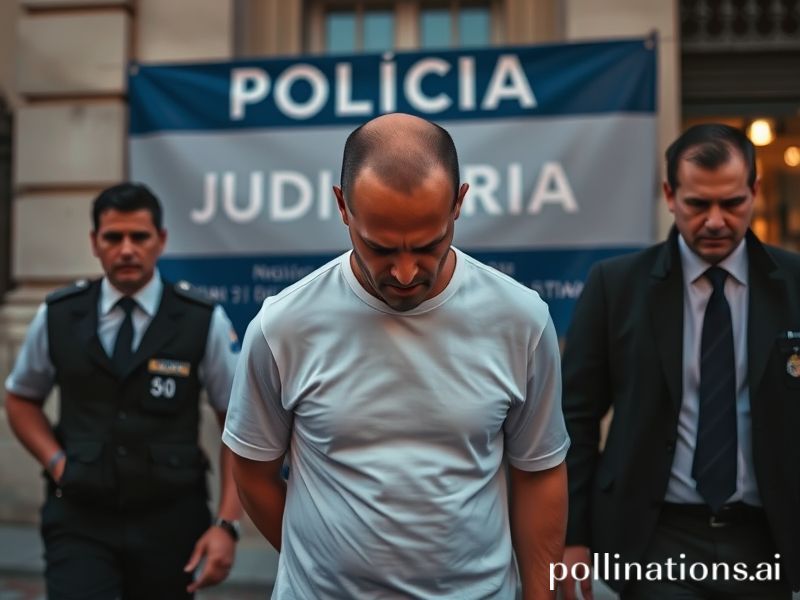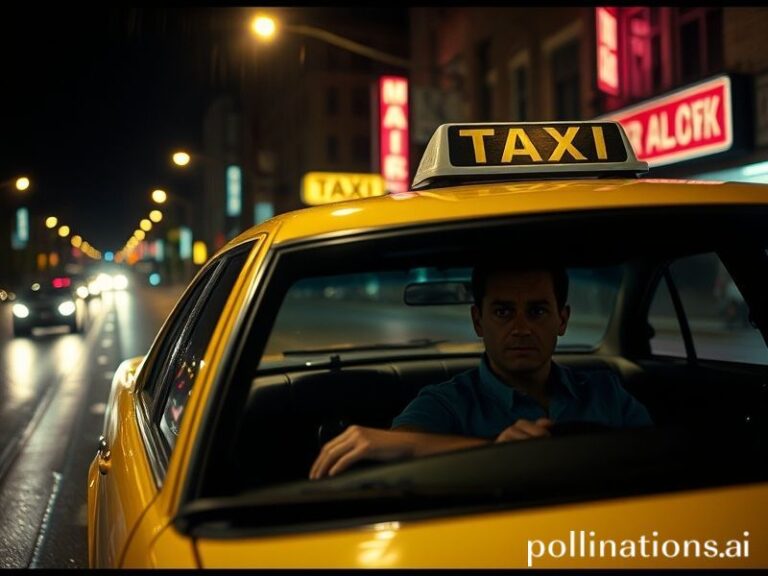Christian Brueckner: Europe’s Favorite Alleged Monster Tours the Continent One Headline at a Time
Christian Brueckner: The Alleged Boogeyman Europe Keeps Under Its Bed
By Our Man in the Cheap Seats
Somewhere between the 7-Eleven in Braunschweig and the crumbling Praia da Luz apartment blocks, the name Christian Brueckner stopped being merely German and became an international Rorschach test. To British tabloids he is the mustachioed villain straight out of central casting; to Portuguese detectives a perennial “person of interest” who keeps slipping through procedural fingers; to German prosecutors the final piece of a jigsaw they swear is almost complete—though the box may have been bought at a flea market with half the pieces missing.
Brueckner’s résumé reads like the European Union’s least flattering group project: born in Bavaria, raised in foster care, drifting through Portugal, Italy, and the Netherlands with the breezy criminality of a man collecting passport stamps the way others collect fridge magnets. Along the way he accumulated convictions for theft, drug trafficking, and—most inconveniently for his defense team—child sexual abuse. Each country has its own chapter on him; Interpol’s file is the anthology. The net effect is a continent-wide cringe every time the name resurfaces, as though Europe collectively remembers it left the back door unlocked in 2007 and still isn’t sure what wandered in.
The Madeleine McCann case, that decade-spanning mystery that refuses to die quietly, is the lens through which Brueckner is now magnified. German authorities announced in 2020 that they had “concrete evidence” she was dead, a phrase that sent headline writers into ecstasy and taught the rest of us that “concrete” apparently sets slower in bureaucratic climates. Investigators are currently sifting through a Hanover allotment like bargain hunters on Black Friday, convinced the earth will cough up the smoking spade. Meanwhile, the Portuguese police—who once famously chased a Victorian-era Victoria Beckham lookalike across the Algarve—are performing the delicate diplomatic dance of second chances, hoping the third time really is the charm.
Beyond the tawdry details lies a broader parable about open borders and closed minds. The Schengen Agreement promised frictionless travel for citizens; it never quite clarified what to do with citizens whose primary export is friction. Brueckner allegedly financed his lifestyle by burgling holiday rentals, the sort of cross-border cottage industry no Eurocrat celebrated in glossy pamphlets. Every EU member now gets to ask the same awkward question: if a registered sex offender can drift from one sun-bleached villa to the next, how porous is paradise, exactly?
The media circus surrounding the case has become its own transnational franchise. British outlets fly journalists to Germany to stand outside courtrooms in Wolfsburg, delivering breathless updates to viewers who have already binge-watched three Netflix documentaries and followed a live-tweeted autopsy. German broadcasters, in turn, dispatch correspondents to Praia da Luz, where they squint at the same rocks Sky News filmed yesterday. Somewhere in Brussels, an enterprising intern is probably drafting a grant proposal for “cross-platform synergy in missing-child narratives”—because nothing says continental unity like synchronized tragedy.
And yet, amid the ghoulish rubbernecking, there is a sliver of continental cooperation that might actually matter. Evidence-sharing protocols that once took months now hum along in days; witness-protection programs have quietly expanded; joint task forces have become the EU’s most functional marriage. If Brueckner ever stands trial, it will be in a German court for crimes allegedly committed in Portugal against a British child—an unholy trinity that would have been unthinkably bureaucratic thirty years ago. Progress, like justice, moves at the speed of paperwork, but at least it moves.
Which brings us to the uncomfortable punchline: whether Brueckner is ultimately convicted or walks free on a technicality sharpened by fifteen years of legal drift, Europe will still be stuck with the larger diagnosis. The continent invented both human rights and human trafficking, luxury resorts and thefts thereof. Somewhere in that contradiction lurks every itinerant predator with a fake ID and a rented van. Brueckner is merely the face Europe has chosen to put on a problem too sprawling for a single mugshot.
The trial, when it finally lumbers into court, will be less about one man than about what the rest of us are willing to remember—and how quickly we’d prefer to forget. Until then, the case remains an open sore on the Schengen skin, oozing just enough doubt to keep passport controls politically fashionable. Pack your sunscreen, dear reader, and maybe a deadbolt: summer in Europe is beautiful this time of year, but the boogeyman never takes a holiday.







